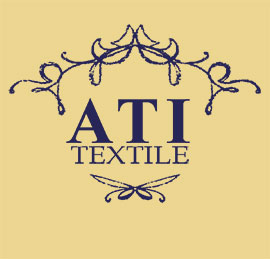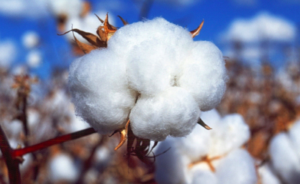ATI’s Sustainable Practices: An Update From Our Partners
ATI Textile is proud to be exclusive partners with Sungmin Textiles, a mill located in Suwon, South Korea. Since its inception, Sungmin has strived to produce textiles in a responsible and ethical way, continually updating processes and materials used to comply with changing regulations. They even go above and beyond these regulations in their responsible production practices, earning them the Bluesign and Oeko-Tex certifications for the printing inks and finishing chemicals they use. They make every effort to ensure minimal impact on the environment and on people, as well as to prevent unnecessary waste wherever possible. Sungmin also values transparency, making information on fibers and processes readily available on their website. Below, I go into detail on the sustainable fibers Sungmin uses and why it is so important that they prioritize their use.
EcoVero Viscose
Derived from sustainable wood and pulp from certified renewable forestry sources, this fluid fabric drapes like silk but washes like cotton and is completely biodegradable. This fiber is produced by Lenzing, a company that has long been at the forefront of sustainable fiber innovation. They provide complete transparency of the production process, letting you see exactly how they go from raw material to woven fabric and finally to Sungmin to print. It is produced in a state-of-the-art facility using cutting-edge processes that guarantee 50% less emission and water consumption than traditional viscose. Sungmin’s extensive knowledge of viscose made it easy for them to transition into using EcoVero viscose while maintaining the high quality handling, performance and finishing for which they are known.
Tencel
This super soft, breathable fabric regulates the absorption and release of moisture when worn on the body, is incredible durable and has good color retention, giving it great long-term value. Sungmin uses both Tencel Lyocell and Tencel Modal made from sustainable wood and pulp that is sourced from certified renewable forests in Australia. Using renewable energy and reusable chemicals in production ensures absolutely nothing goes to waste, reducing the environmental footprint of this fabric 60% compared to traditional viscose. Even more, it is 100% biodegradable!
BCI Cotton
Established in 2009, the Better Cotton Initiative is the world’s largest cotton sustainability program and the most widely used. BCI supports farmers in reducing their environmental footprint and improving working conditions, creating a more socially conscious chain of production. Criteria for responsible cotton farming covers crop protection, water management, soil and natural habitat health, biodiversity, land responsibility, fiber quality, well-being of employees and management systems. Because BCI is funded by licensing fees, there is no charge to the farmer for their services, making it so accessible that 1.5 million tons of cotton were yielded using BCI standards in 2019.
GOTS Cotton
Established in 2005, the Global Organic Textile Standard sets the worldwide standards for organic cotton fibers that include ecological and social criteria. GOTS requires assessment of the entire supply chain for the fabrics’ production cycle, making it the most thorough certification in the industry. Their criteria covers all fiber processing, all chemical processing, and dye and finishing solvent quality to ensure they are non-toxic and biodegradable. Waste discharge is also monitored, and strict records must be kept on water, energy and chemical use. Social criteria covers welfare, health and safety, legal rights, minimum age and wage requirements, and working conditions.
Sources: Sungmin Textiles, Global Organic Textile Standard, Tencel, Better Cotton Initiative, Ecovero


